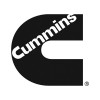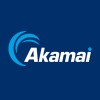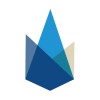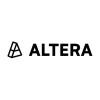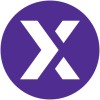Job Description
Build high-quality, innovative and fully performing software in compliance with coding standards and technical design. Design, modify, develop, write and implement software programming applications. Support and/or install software applications. Participate in the testing process through test review and analysis, test witnessing and certification of software.
Key Responsibilities
Develop software solutions by studying information needs; conferring with users; studying systems flow, data usage and work processes; investigating problem areas; following the software development lifecycle; Document and demonstrate solutions; Develops flow charts, layouts and documentation Determine feasibility by evaluating analysis, problem definition, requirements, solution development and proposed solutions; Understand business needs and know how to create the tools to manage them Prepare and install solutions by determining and designing system specifications, standards and programming Participate in educational opportunities; read professional publications; maintain personal networks; participate in professional organizations Provide information by collecting, analyzing, and summarizing development and issues while protecting IT assets by keeping information confidential; Improve applications by conducting systems analysis recommending changes Define applications and their interfaces, allocate responsibilities to applications, understand solution deployment, and communicate requirements for interactions with solution context, define Nonfunctional Requirements (NFRs) Understands multiple architectures and how to apply architecture to solutions; understands programming and testing standards; understands industry standards for traditional and agile development.
Job Skills/Core Responsibilities
Research, prototype, and evaluate emerging tools and frameworks in areas like CI/CD, observability, container orchestration, and infrastructure as code (IaC).
Develop proof-of-concept systems that demonstrate innovative DevOps solutions and integrate them into experimental or production environments.
Collaborate with developers, engineers and researchers to improve automation, scalability, and performance across our internal development platforms.
Responsibilities
Competencies:
Business insight – Applying knowledge of business and the marketplace to advance the organization’s goals.
Communicates effectively – Developing and delivering multi-mode communications that convey a clear understanding of the unique needs of different audiences.
Customer focus – Building strong customer relationships and delivering customer-centric solutions.
Global perspective – Taking a broad view when approaching issues, using a global lens.
Manages conflict – Handling conflict situations effectively, with a minimum of noise.
Agile Architecture – Designs the fundamental organization of a system embodied by its components, their relationships to each other and to the environment to guide its emergent design and evolution.
Agile Development – Uses API-First Development where requirements and solutions evolve through the collaborative effort of self-organizing and cross-functional teams and their customer(s)/end user(s) to construct high-quality, well designed technical solutions; understands and includes the Internet of Things (IoT), the Digital Mesh, and Hyper Connectivity as inputs to API-First Development so solutions are more adaptable to future trends in Agile development.
Agile Systems Thinking – Embraces a holistic approach to analysis that focuses on the way that a system’s constituent parts interrelate and how systems work over time and within the context of larger systems to ensure the economic success of the solution.
Agile Testing – Leads a cross-functional agile team with special expertise contributed by testers working at a sustainable pace, by delivering business value desired by the customer at frequent intervals to ensure the economic success of the solution.
Regulatory Risk Compliance Management – Evaluates the design and effectiveness of controls against established industry frameworks and regulations to assess adherence with legal/regulatory requirements.
Solution Functional Fit Analysis – Composes and decomposes a system into its component parts using procedures, tools and work aides for the purpose of studying how well the component parts were designed, purchased and configured to interact holistically to meet business, technical, security, governance and compliance requirements.
Solution Modeling – Creates, designs and formulates models, diagrams and documentation using industry standards, tools, version control, and build and test automation to meet business, technical, security, governance and compliance requirements.
Values differences – Recognizing the value that different perspectives and cultures bring to an organization.
Education, Licenses, Certifications
College, university, or equivalent degree in Computer Science, Engineering, or related subject, or relevant equivalent experience required. This position may require licensing for compliance with export controls or sanctions regulations.
Experience
Experience working as a software engineer such as in a temporary student employment, intern, co-op, or other extracurricular team activities is preferred and includes working in an Agile environment and demonstrating knowledge in fundamental IT technical skill sets and ability to take a solution from scoping requirements through actual launch of the solution.
Experience Requirements
Hands-on experience with Linux systems, basic scripting (e.g., Bash, Python), and Git-based workflows.
Exposure to cloud computing platforms (AWS, Azure, or GCP) through coursework, internships, or research projects.
Familiarity with CI/CD solutions using tools like GitHub/GitHub Actions, GitLab CI/CD, Terraform.
Foundational understanding of containerization concepts, including familiarity with tools like Docker and Kubernetes from coursework, internships, or personal projects.
Experience Preferences
Hands-on experience in Docker and orchestration tools like Kubernetes for deploying, scaling, and managing containerized applications in production environments.
Basic understanding of DevOps principles with exposure to secure software development practices aligned with ISO 27001 and NIST frameworks (e.g., NIST SP 800-53, NIST Cybersecurity Framework).
Qualifications
College Job Type: Entry Level
Engineering Subfunction: Software Engineering
Degree Level: Bachelor’s
Educational Program: Software Engineering preferred; open to Product Engineering
Start Date: January 2026 preferred; open to summer 2026
Job Skill Requirements
Hands-on experience with Linux systems, basic scripting (e.g., Bash, Python), and Git-based workflows.
Exposure to cloud computing platforms (AWS, Azure, or GCP) through coursework, internships, or research projects.
Familiarity with CI/CD solutions using tools like GitHub/GitHub Actions, GitLab CI/CD, Terraform.
Foundational understanding of containerization concepts, including familiarity with tools like Docker and Kubernetes from coursework, internships, or personal projects.
Required Work Location: Remote but prefer candidates local to Indiana area.
Job Systems/Information Technology
Organization Cummins Inc.
Role Category Remote
Job Type Exempt – Entry Level
Min Salary $57600
Max Salary $86400
Application End Date 03-DEC-2025
ReqID 2420573
Relocation Package Yes
Cummins and E-Verify
At Cummins, we are an equal opportunity and affirmative action employer dedicated to diversity in the workplace. Our policy is to provide equal employment opportunities to all qualified persons without regard to race, gender, color, disability, national origin, age, religion, union affiliation, sexual orientation, veteran status, citizenship, gender identity and/or expression, or other status protected by law. Cummins validates the right to work using E-Verify and will provide the Social Security Administration (SSA) and, if necessary, the Department of Homeland Security (DHS), with information from each new employee’s Form I-9 to confirm work authorization.
